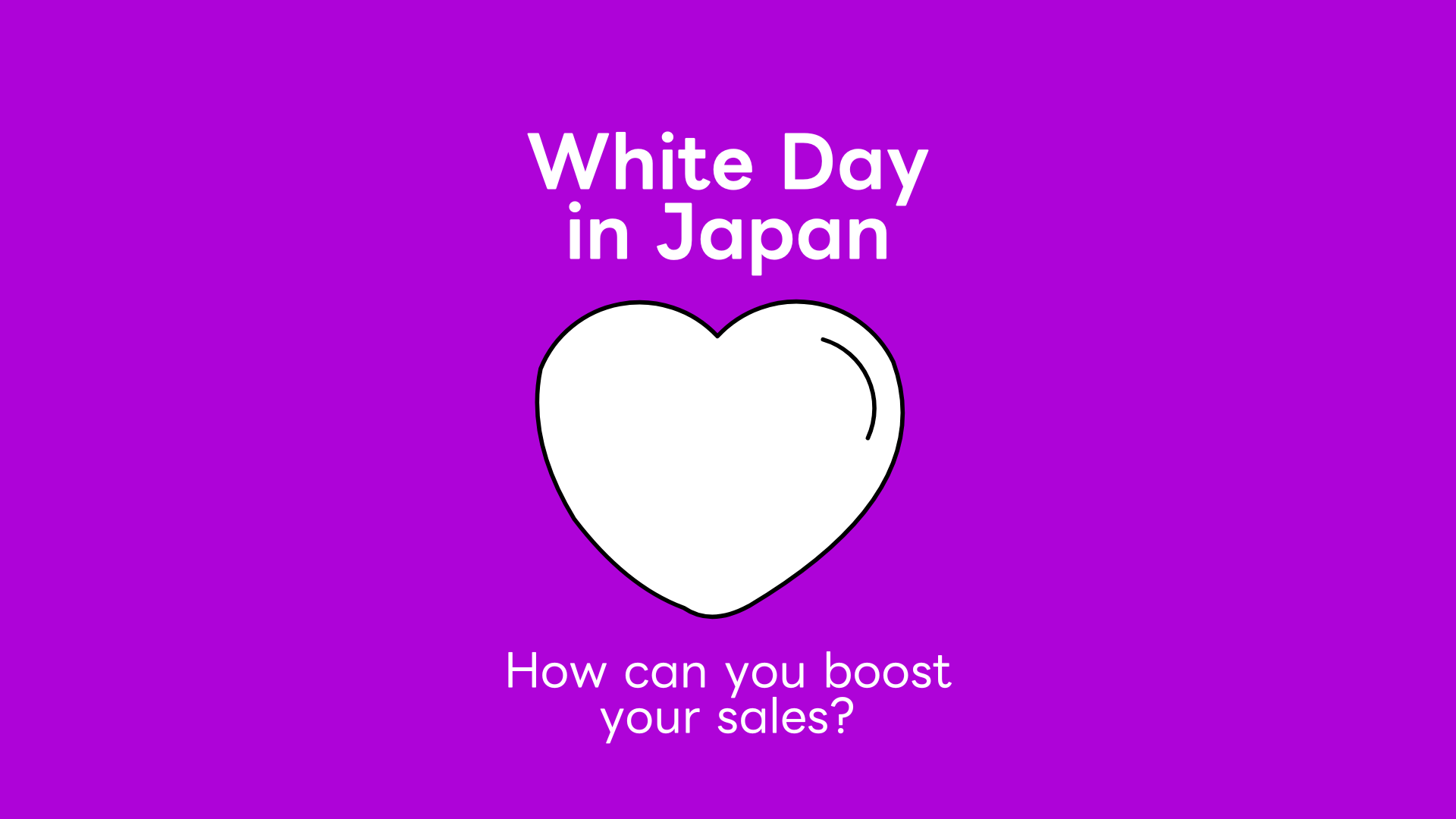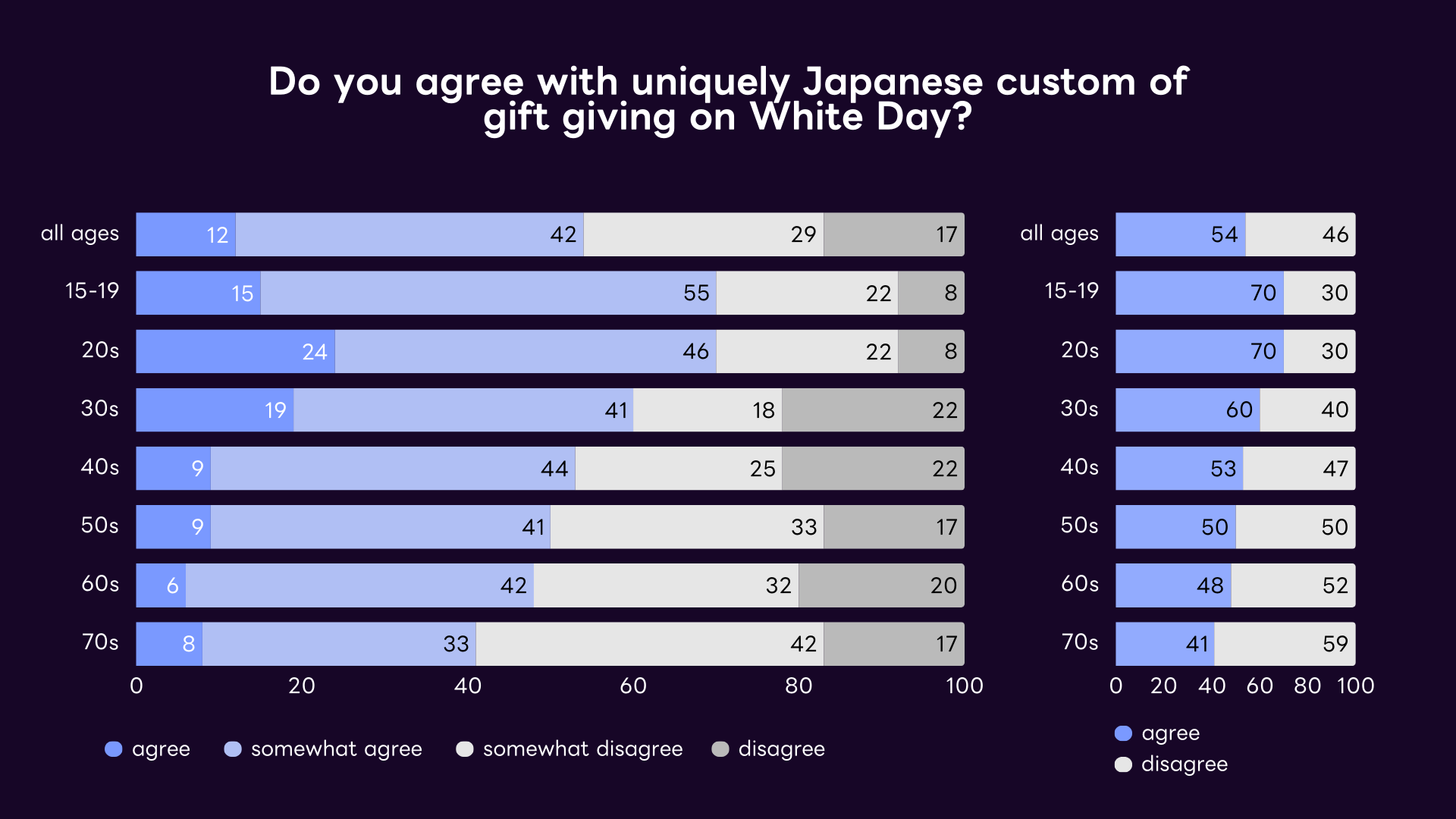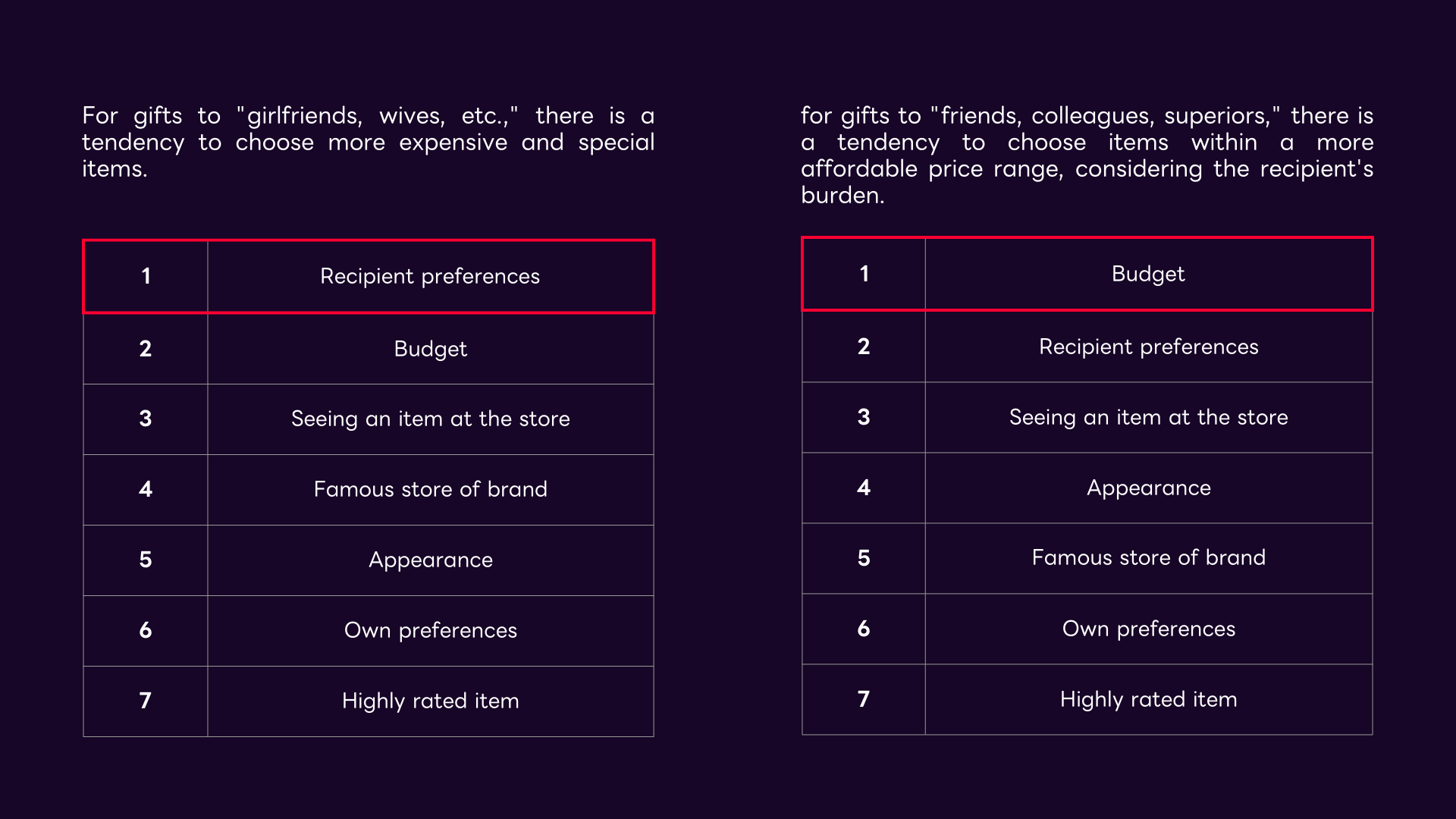Insights >
Maximize Your 2025 White Day Sales in Japan


New: 2025 Travel Industry Trend Report | download for FREE >>


White Day, the custom of returning gifts on March 14th, is a uniquely Japanese tradition. This practice of giving and receiving gifts is deeply rooted in Japanese culture.
It places a strong emphasis on social harmony and reciprocity. On this day, it is customary for men to give gifts to the women who gave them chocolates on Valentineʼs Day.
Read our blog about Valentine’s Day in Japan here →
Common White Day gifts include sweets, flowers, and white accessories like handbags, lingerie, or jewellery.
In recent years, the tradition of White Day has evolved to include gifts for friends and family members as well. This has led to a wider variety of gifts, from chocolates and candies to accessories and electronics.
We analysed the 2024 White Day Survey results published by Loyalty Marketing Inc. This survey aimed to provide insights into consumer behaviour and attitudes towards the annual gift-giving holiday.
While 54% of male respondents felt pressured to give White Day gifts, there was a noticeable generational divide. Younger men (20s and below) were more accepting of the custom.
Source: Loyalty Marketing, Inc.
When asked about their opinions on the Japanese custom of giving gifts on White Day, we found a fairly even split. 54% of respondents expressed support for the tradition, while 46% were opposed. A clear generational gap emerged, with younger respondents (especially those under 20) showing significantly higher levels of support, at 70%. This suggests that White Day is more widely accepted among younger generations.

Source: Loyalty Marketing, Inc.
The most common recipients were spouses (39%), other family members (15%), and friends of the opposite sex (14%).
Source: Loyalty Marketing, Inc.
Many respondents expressed practical concerns about gift selection, with a significant number finding the process of choosing gifts to be time-consuming and stressful.
The overall average was 1.17, with the 30s age group showing a significantly higher average of 1.35 gifts.
The overall average was ¥2,601. The 40s and 60s age groups spent slightly more, with an average of around ¥3,000. The average amount spent per person was ¥2,218.
Source: Loyalty Marketing, Inc.
When asked about their overall feelings towards White Day, many respondents expressed a mix of positive and negative emotions. While some enjoyed the tradition of gift-giving, others felt pressured or indifferent. Notably, 44% of respondents indicated that none of the provided options fully captured their sentiments.
The survey revealed generational differences in attitudes towards White Day. Younger men were more likely to embrace the custom and give gifts to a wider range of people, while older men tended to focus on giving gifts to their spouses or family members.
When compared to Valentine’s Day, White Day gift-giving exhibited less variation across different age groups. However, the average spending on White Day gifts was slightly higher.
Conclusion
The 2024 White Day survey provides valuable insights into the evolving attitudes of Japanese men towards this traditional gift-giving holiday. While the custom remains popular, there is a growing sense of ambivalence among some consumers, particularly regarding the perceived obligation to give gifts.
With Valentine’s Day behind us, it’s time to start gearing up for White Day. Recent trends show that approximately 50% of White Day purchases are made by women, often on behalf of family members. This shift in consumer behavior presents new opportunities for businesses.
Customer searches for White Day gifts typically increase after Valentine’s Day, culminating in a peak on March 14th.
Analyzing 2024 search trends reveals a surge on February 14th, followed by a gradual increase. Based on this, we can anticipate strong sales on Yahoo! Shopping on the following 5 days: February 15th, 25th, and March 5th. Additionally, we expect a surge in demand during the weekend of March 8th and 9th.

Respondents mentioned factors such as the recipient’s preferences, budget, appearance, and brand reputation. According to Yahoo! Shopping data, approximately half of White Day-related product purchasers were women. This suggests that mothers and wives often purchase return gifts on behalf of their children or husbands.

Source: Yahoo! Shopping White Day Gift Guide
Sweets and accessories are popular choices for White Day gifts. However, there’s a growing trend towards more personalized and experience-based gifts.
Source: Yahoo! Shopping White Day Gift Guide
Download our free Yahoo! JAPAN Ads Media Guide and learn how to start advertising on Japan’s most popular platform in 3 easy steps.
Our team offers free support on Yahoo! JAPAN & LINE advertising products. We can still help you optimise your campaigns before the big day!
Contact us today to learn how we can help you achieve your marketing goals in Japan.
